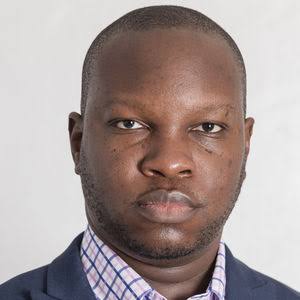Nigeria: Sowing Violence, To Reap the Whirlwind
By Cheta Nwanze
A final word on this: Think about the Arab Spring from a decade ago. Most of the leaders of those countries responded with brute force. But in Jordan, King Abdallah, after an initial heavy response, spoke with empathy about the protests and then asked his prime minister to resign. King Abdallah is still there. Hosni Mubarak, Muammar Gadaffi, Zine Ben Ali, are all gone.

A lot of our problems in Nigeria stem from the fact that Nigeria is a poor country that has for four decades pretended to be rich and lived as if it is rich. Now the chickens have come home to roost.
Basically, the economic project that is Nigeria was designed to serve no more than 5,000 people. That explains why (and I’m being generous here), we never had more than 2,000 people at any given time in the colonial administration. The design of the business called for those people to get the maximum value out of it, while the rest were meant to be essentially serfs working for the comfort of this super-elite.
At “Independence”, the new local overlords didn’t do much to change this structure. We had six years in which competition amongst these new overlords opened things up a little (Bompai, Oba Akran and Trans-Amadi), but overall, the structure remained. Then came oil…
Oil allowed the Nigerian state to more or less ignore the people. There were the occasional handouts to prevent popular uprisings, but the Nigerian state has arguably, created real wealth for no more than 500,000 of its citizens since independence, and I’m being generous here. When you consider that as of “Independence”, we had a population of no more than 47 million, which has grown to at least 140 million today, you’ll realise just how poor this return is.
Read also:Nigerian health startup RxAll tapped for FFA investment
This is where the tone-deafness of the government comes into play. A few hours ago, thugs attacked protestors in Abuja. This is not a new tactic. The Nigerian state will attempt to goad the protesters into a violent reaction, to provide casus belli. It may work this time, but for how long can it?
It is against this background that the current protests, which at over a week have become the longest street protests since at least 1988, must be looked at. Nigeria has a ridiculous unemployment problem, and university students (who number in the millions) have been sitting at home for months, and it’s not just because of the COVID-19 pandemic. These idle students look ahead of them, and they don’t see jobs when they finish their education. In the past, I’ve talked about my brother’s medical class of 2006 from University of Benin (UNIBEN) and how they have slowly been departing Nigeria. The last of them started a residency programme in Atlanta, Georgia early this year. But which other of the many courses thought in our institutions of higher learning can command such interest from outside the shores of our country? Ergo, these young people know that their future is messed up.
Read also:Google Launches $4.1 Million In Financial Assistance To Startups In North Africa
This is where the tone-deafness of the government comes into play. A few hours ago, thugs attacked protestors in Abuja. This is not a new tactic. The Nigerian state will attempt to goad the protesters into a violent reaction, to provide casus belli. It may work this time, but for how long can it?
Reading the details of the budget, and seeing ₦2.6 billion still being budgeted for spiritual exercises, despite our dire financial straits, confirms something I’ve said in the past. The Nigerian state has a shortlist of people it intends to keep happy, the patronage system, and the rest of us, well, could get lost.
Times have changed. Nigeria’s government needs to change with the times. The old way of doing things, especially given that the Nigerian state provably no longer has a monopoly of violence in the country, should give way to a new way.
Basically, religious leaders are on that list since they are seen as influential enough to keep people sweet. The security services are on that list as well, but because they have guns, it’s increasingly obvious that they’ve been given a carte blanche to use those guns and service themselves. But, the clock is ticking. The government does not realise that the boat has sailed and the old way of doing things no longer carries weight. It may succeed in ending the current protests (there are already murmurs that money has been shared and the movement may be fracturing), but the next one?
A final word on this: Think about the Arab Spring from a decade ago. Most of the leaders of those countries responded with brute force. But in Jordan, King Abdallah, after an initial heavy response, spoke with empathy about the protests and then asked his prime minister to resign. King Abdallah is still there. Hosni Mubarak, Muammar Gadaffi, Zine Ben Ali, are all gone. Bashir Assad is presiding over, well… he is not presiding over a country.
Times have changed. Nigeria’s government needs to change with the times. The old way of doing things, especially given that the Nigerian state provably no longer has a monopoly of violence in the country, should give way to a new way.
Cheta Nwanze is lead partner at SBM Intelligence.
Kelechi Deca

Kelechi Deca has over two decades of media experience, he has traveled to over 77 countries reporting on multilateral development institutions, international business, trade, travels, culture, and diplomacy. He is also a petrol head with in-depth knowledge of automobiles and the auto industry





